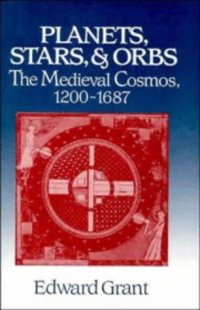
Ebook: Planets, Stars, and Orbs: The Medieval Cosmos, 1200–1687
Author: Edward Grant
- Tags: History, Reference, Engineering, Engineering & Transportation, History & Philosophy, Science & Math, Physics, Acoustics & Sound, Applied, Astrophysics, Biophysics, Chaos Theory, Chemical Physics, Cosmology, Dynamics, Electromagnetism, Electron Microscopy, Energy, Engineering, Entropy, Gas Mechanics, Geophysics, Gravity, Light, Mathematical Physics, Mechanics, Microscopy, Molecular Physics, Nanostructures, Nuclear Physics, Optics, Quantum Chemistry, Quantum Theory, Relativity, Solid-State Physics, System Theory, Time, Waves & Wave M
- Year: 1994
- Publisher: Cambridge University Press
- City: Cambridge
- Language: English
- pdf
Medieval cosmology was a fusion of pagan Greek ideas and biblical descriptions of the world, especially the creation account in Genesis. Because cosmology was based on discussions of the relevant works of Aristotle, primary responsibility for its study fell to scholastic theologians and natural philosophers in the universities of western Europe from the thirteenth to the seventeenth century. Edward Grant describes the extraordinary range of themes, ideas, and arguments that constituted scholastic cosmology for approximately five hundred years, from around 1200 to 1700. Primary emphasis is placed on the world as a whole, what might lie beyond it, and the celestial region, which extended from the Moon to the outermost convex surface of the cosmos. Another important aspect of this study is how natural philosophers in the sixteenth and seventeenth centuries responded to the new interpretations of a heliocentric instead of a geoheliocentric Aristotelian cosmology.
Download the book Planets, Stars, and Orbs: The Medieval Cosmos, 1200–1687 for free or read online
Continue reading on any device:

Last viewed books
Related books
{related-news}
Comments (0)